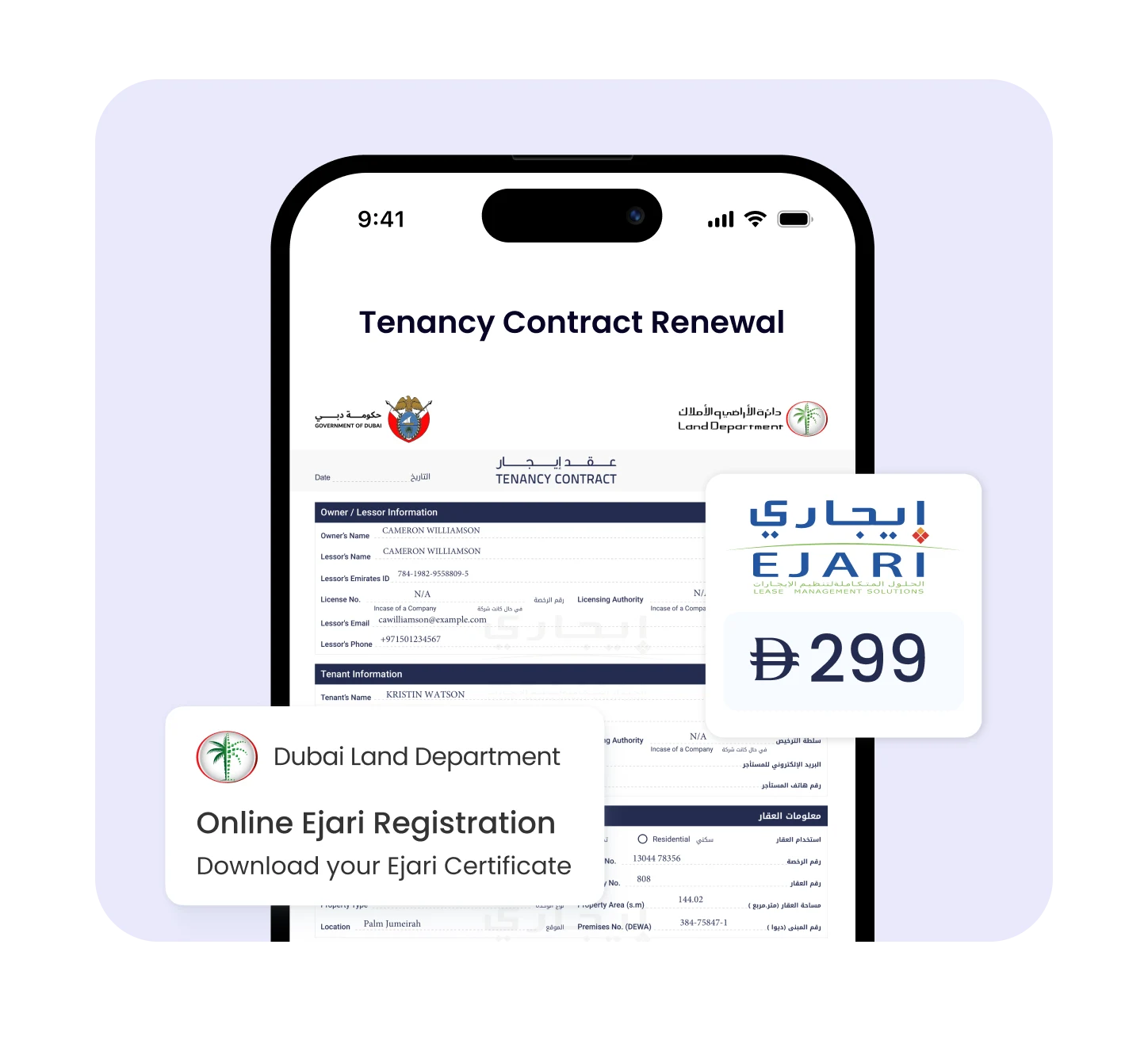February 23, 2026
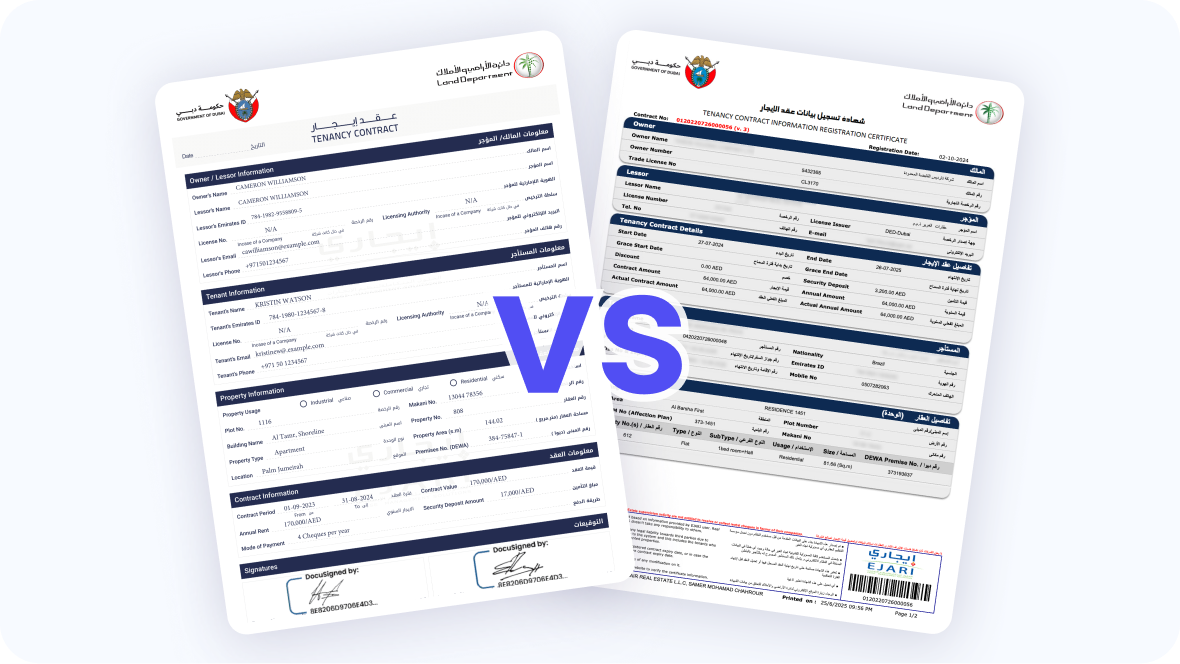
In Dubai, tenancy relationships between landlord and tenant are governed by a signed tenancy contract and mandatory registration through Ejari. Among the most common points of confusion for tenants and even new landlords is the distinction between the tenancy contract and Ejari.
While these terms are often used interchangeably in everyday conversation, they are not the same thing. This article will clear up the confusion by breaking down what each document is, its purpose, and how they work together.
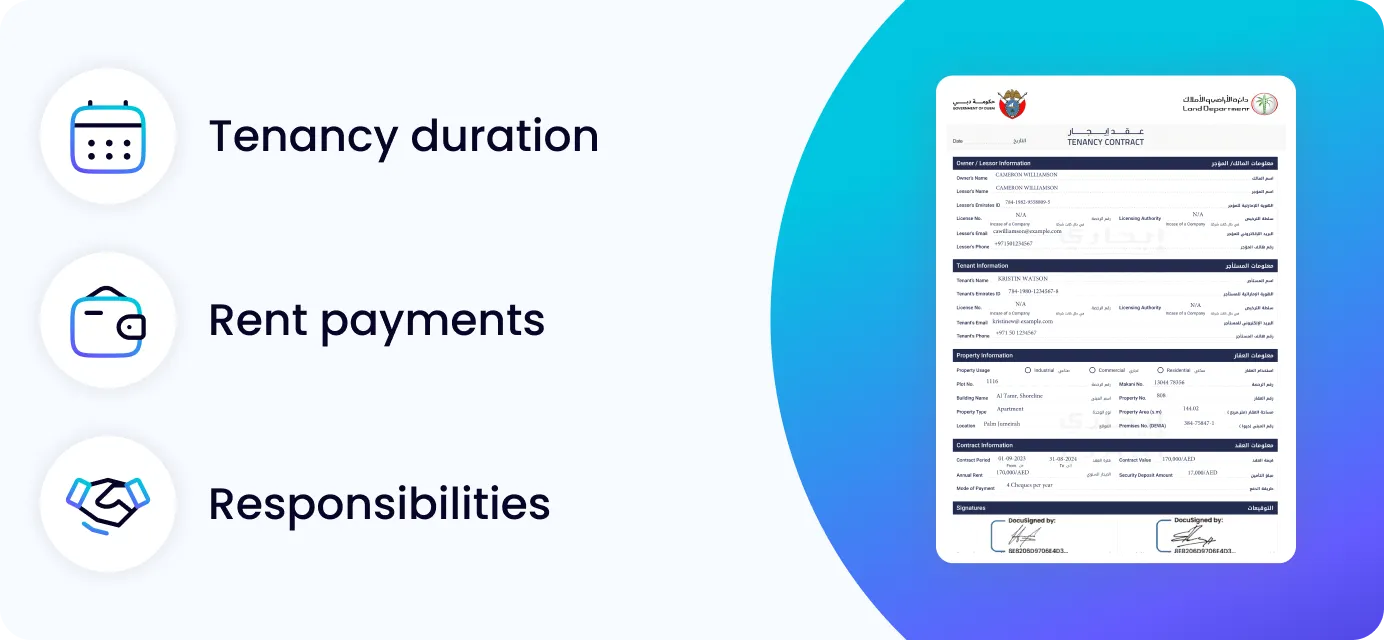
A tenancy contract, also commonly referred to as a lease agreement, rental contract, or tenancy agreement, is the foundational legal document governing the relationship between a landlord (owner) and a tenant. It outlines the terms and conditions of the rental arrangement, including:
The tenancy contract is primarily a civil agreement between the two private parties: the landlord and the tenant. It matters most to them as it is the reference point for resolving any disputes regarding the tenancy's operational aspects.
The Dubai Land Department (DLD) provides a standard tenancy contract template through its official channels.
Parties may add clauses or attach addendums, provided these do not contradict mandatory provisions of Dubai tenancy law. While no separate DLD template exists for addendums, any additional terms must comply with applicable regulations.
For a detailed overview of addendums and their legal limitations, see our article.
For new tenancies (a new tenant moving in), the tenancy contract is often prepared by the real estate agent assisting the landlord with tenant search and screening. However, landlords and tenants are entirely capable of drafting and signing a new contract without an agent. For detailed instructions on how to prepare and sign a tenancy contract independently, see our guide.
For contract renewal, agent involvement is often unnecessary, as the renewal process is simpler and only requires updates to dates and, potentially, the rent amount. While many landlords and tenants seek agent support due to a lack of confidence, the renewal can be handled easily and digitally between the two parties. For instance, platforms like Habi offer a simple, digital, and frictionless experience to manage renewals efficiently.
The landlord is ultimately responsible for ensuring a legally compliant and correctly executed tenancy contract, though the tenant must also review and agree to all its terms.
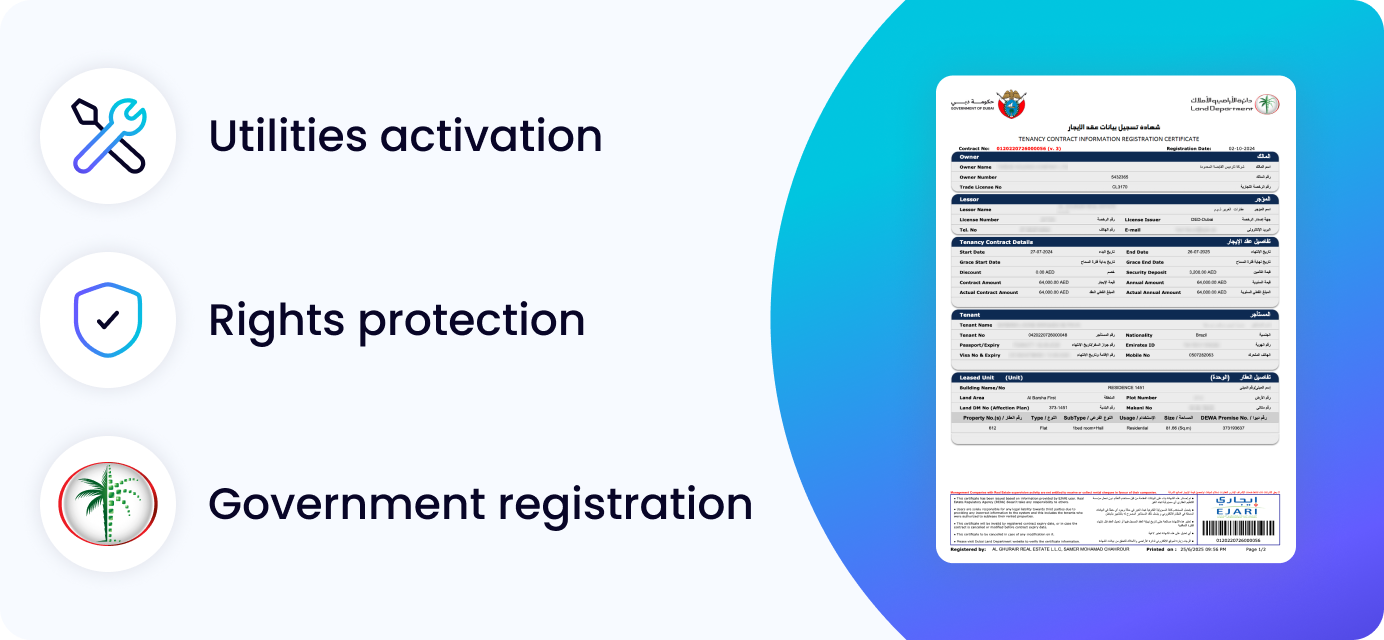
The term Ejari (Arabic for ‘My Rent’) refers to the online registration system established by the DLD to govern the regulatory aspect of Dubai’s rental market. It is not the contract itself, but the system that officially registers the contract.
An Ejari Certificate is the official confirmation issued by the Ejari system after a tenancy contract has been registered with the Dubai Land Department (DLD).
The certificate confirms that the tenancy has been recorded in the government system. Ejari registration is required for certain administrative procedures, including DEWA activation and specific residency-related processes.
Ejari registration creates an official record of the tenancy contract within the Dubai Land Department (DLD) system.
Without a valid Ejari certificate, a tenant cannot:
The landlord is legally responsible for registering the tenancy contract in the Ejari system, but in practice, tenants often undertake this process. The responsibility for registration can also be specified in the addendums of the tenancy contract.
Ejari registration is completed through authorised channels approved by the Dubai Land Department (DLD). Available options include the official Ejari website, DubaiNow, Dubai REST app, AQARI WhatsApp, and other licensed service providers.
Digital registration typically requires the landlord’s approval within the system. Some licensed platforms, including Habi, facilitate Ejari registration based on a digitally signed tenancy contract and submission of the required documentation.
The required documents generally include:
For a step-by-step explanation of the registration process, see our guide: Step-by-Step Guide to Registering Ejari Online in Dubai
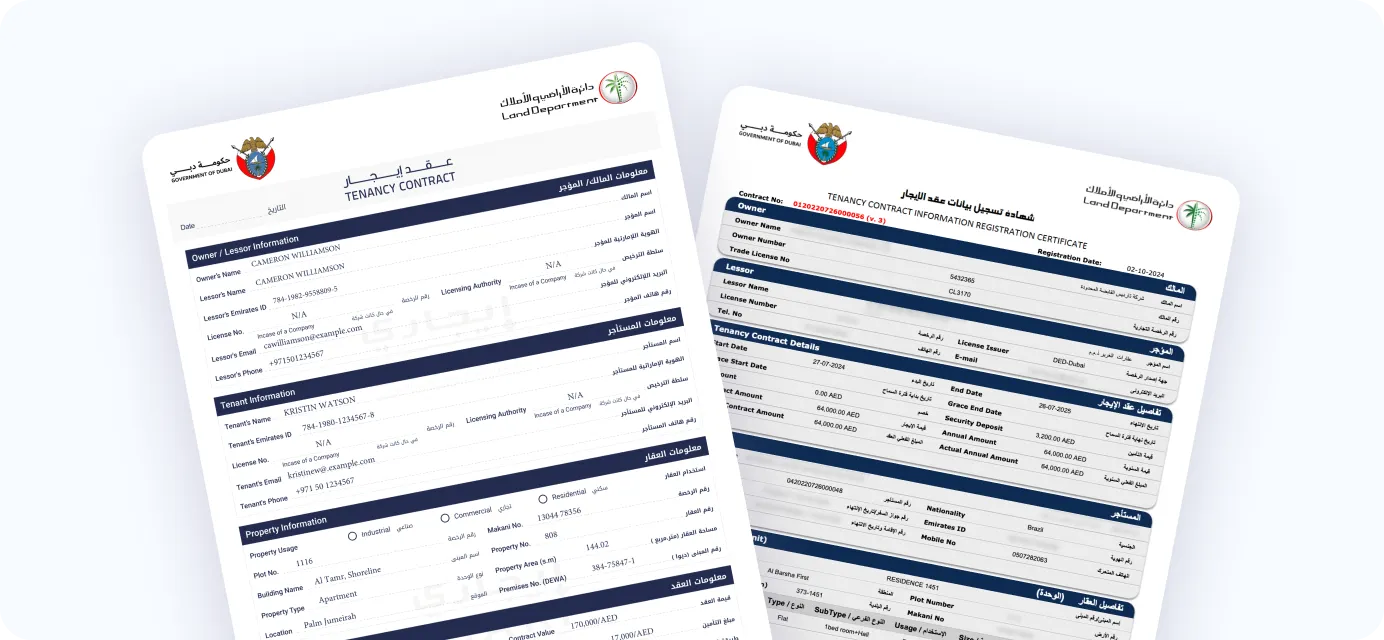
While the tenancy contract and Ejari are intrinsically linked, they serve distinct purposes. The tenancy contract defines the "what" of your rental agreement, while Ejari is the "how" of making it officially recognised.
Here is a table to clearly visualise the differences:
Both documents must be kept current. The validity of the Ejari registration is tied directly to the validity of the underlying tenancy contract.
While the terms tenancy contract and the Ejari certificate are often used interchangeably, their roles are distinct. The contract sets the rules; the Ejari makes it legal. Understanding this distinction is the first step toward a compliant and conflict-free tenancy in Dubai.
The tenancy contract always comes first. You must have a signed tenancy contract before you can register it in the Ejari system.
Yes, registering your tenancy contract with Ejari is a legal requirement for all residential and commercial rental properties in Dubai.
The main purpose is to officially register the lease, ensuring transparency, protecting the rights of all parties, and enabling the tenant to access essential government services like DEWA and residency visas.
No, you cannot. A valid Ejari registration certificate is a mandatory document to open a new DEWA account or transfer an existing one to your name.
Without Ejari, your tenancy is not officially recognised by the government. This means you will be unable to connect utilities, use the rental contract for visa processes, or have legal protection from the Rental Dispute Settlement Centre (RDSC) in case of a conflict with your landlord.
Yes, you can renew the private agreement with your landlord. However, without renewing Ejari, the new contract will not be official, and you will face the same problems as not having Ejari at all (no utilities, no legal protection, etc.).
Create the renewal contract, e-sign, and register Ejari online - all in one place.
